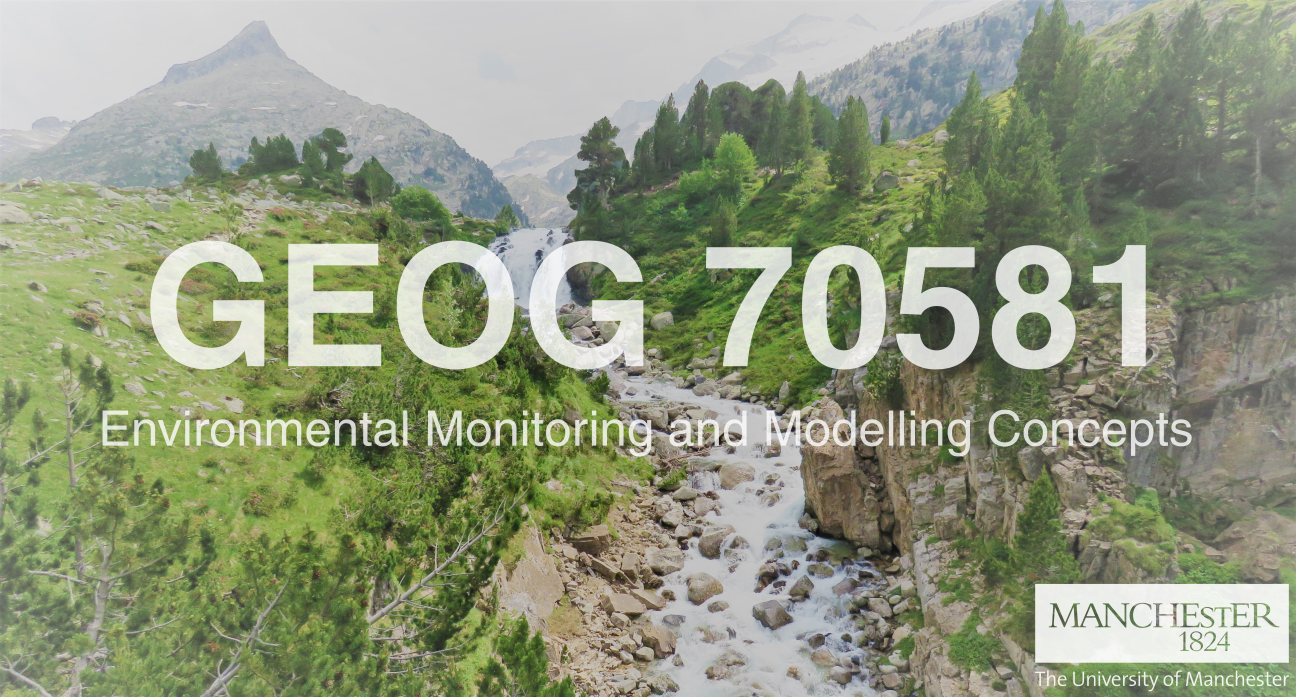Hydrological analysis in R
Hydrological analysis in R
Chapter 1 Introduction

1.1 Practical outline
In this set of practicals, we’ll be using R, RStudio and WhiteboxTools to perform hydrological analysis.
In Chapters 2 and 3, we’ll install and get to grips with the required programs.
In Practical 1 (Chapters 4 - 6), which uses data for the Eskdale watershed, we’ll introduce you to some of the key approaches, including DEM pre-processing, calculating flow parameters and comparing flow algorithms.
In Practical 2 (Chapters 7 - 9), we’ll utilise these approaches to investigate the water quality of the Mersey Basin. This forms the basis for your assessment.
Note: the relevant chapters will be made available as we progress through the semester. Prior to the semester, only the introductory page will be visible.
1.2 Objectives
After completing these practicals, you will:
- have gained experience with new tools (e.g. R, RStudio, WhiteboxTools);
- become familiar with hydrological approaches used to simulate overland flow from digital elevation models (DEMs);
- utilised statistical analysis to investigate the relationships between water quality indicators and catchment characteristics;
- improved your understanding of the hydrological processes influencing water quality.
1.3 Schedule
These practicals will be completed across Weeks 8 to 12 as follows:
- Week 8:
- Introductory lecture (~1 hr)
- Complete Chapters 1 - 3: An introduction to R (~2 hr)
- Weeks 9:
- Lecture on Hydrological and Geomorphological models (~1 hr)
- Complete Chapters 4 - 6: Eskdale practical (~2 hr, plus independent work)
- Weeks 10 - 12:
- Lecture on Water Quality Modelling (~1 hr)
- Complete Chapters 7 - 10: Mersey practical (~6 hr, plus independent work)
The assessment, based upon Practical 2 (Mersey), is detailed in full on Canvas here.